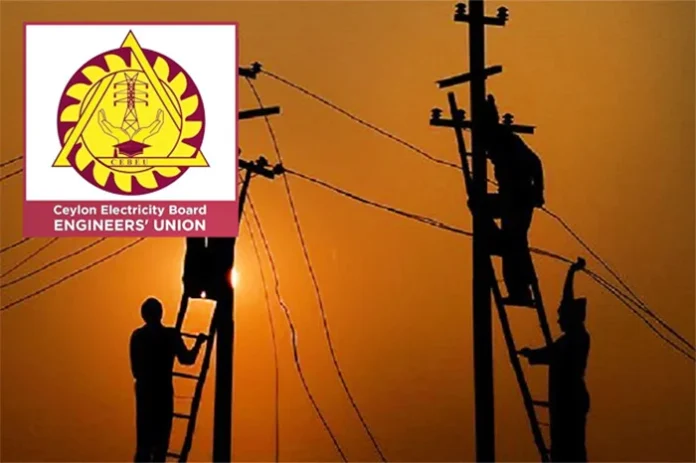By: Staff Writer
October 20, Colombo (LNW): In a stark warning to Parliament, the engineers’ union of the Ceylon Electricity Board (CEB) has raised grave concerns over the government’s move to un-bundle the utility into separate generation, transmission and other successor companies.
The union says the approved “Preliminary Transfer Plan” (PTP) lacks fundamental information on how assets, liabilities, cash-flows and operations will be divided threatens to undermine the continuity of electricity supply.
The CEB Engineers’ Union (CEBEU), in a letter to the Sectoral Oversight Committee on Infrastructure and Strategic Development, states that when CEB is split the PTP fails to detail how loans will be shared or how cash will flow from the distribution company via Power Purchase Agreements to enable the generation entity to service debt.
It also says there is no clarity on how the generation, transmission and the proposed National System Operator will work together operationally.
The letter points to a host of statutory violations: for example no valuation of land, plant and machinery by the chief valuer as required under Section 39.1(b), and absence of inter-company reconciliation of receivables and payables, inventories and stocks (Sections 18.2(a), 18.3(b)).
It also highlights that only four of the six intended successor companies have been incorporated despite the law requiring six, including a trustee/pension fund company and a residual entity. These omissions, the union argues, breach Section 17.2, 18.3(d), 18.3(e) and others of the Sri Lanka Electricity Act, No. 36 of 2024.
The union further complains that the PTP was circulated only to selected management in CEB on 25 September 2025 and that it had already been forwarded to the Ministry of Finance, Sri Lanka for approval the same day, with Finance Minister’s approval dated 11 October 2025, despite the very short window for comment and without full employee or trade-union input.
With no operational agreements crafted between the successor companies, no clear Power Purchase Agreements, Transmission Service Agreements or draft licences for the National System Operator or National Transmission & National Supply entities, the union argues the reform may collapse the entire sector “not because of the employees of CEB, but entirely due to the Ministry’s reckless and irresponsible handling of the process.”
The unbundling process is part of a larger reform agenda tied to the country’s committed programme with the International Monetary Fund (IMF) to restructure state-owned enterprises and open the electricity sector to private investment, improve transparency and attract financing.
But the engineers’ union’s letter suggests that the reform’s legal and operational foundations are not yet in place.
The union is urging the parliamentary committee to review the reform process urgently, summon relevant officials for clarification, permit the union to present its professional observations and proposals, and ensure the transition is implemented strictly according to law, transparency and accountability.
